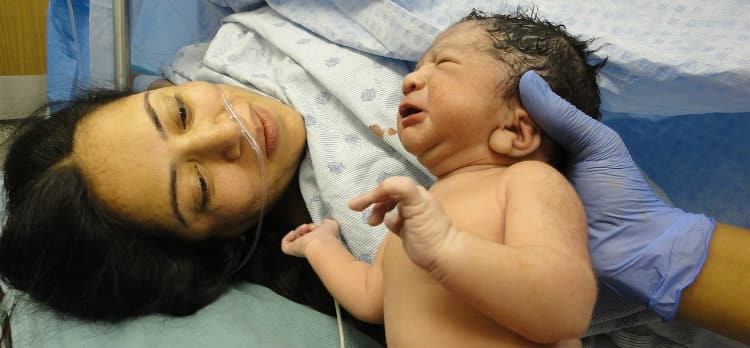A Minnesota couple whose baby was born with severe brain damage has filed suit against St. Paul’s Regions Hospital and HealthPartners, the company that operates the hospital, accusing medical professionals at the facility of failing to provide the mother and her son with adequate medical care during labor and delivery, according to the Pioneer Press.
St. Paul Suit Accuses Regions Hospital Of Birth Negligence
The parents filed their medical malpractice lawsuit in Ramsey County District Court on Tuesday, February 19, 2019. The legal complaint seeks financial damages from both Regions Hospital, located in St. Paul, Minnesota, and operating company HealthPartners so the family can handle the medical bills associated with their child’s ongoing medical care costs. The claim also seeks compensation for the emotional relationship the boy’s disabilities will prevent him from having with his parents.

In their lawsuit, the couple accuses Regions Hospital staff members of failing to intervene properly when their child’s fetal heart rate monitor indicated signs of fetal distress. The family’s baby was born on November 8, 2016. His mother had been in labor for over 20 hours. In court documents, the family claims that staff at the hospital should have advised the mother to undergo an emergency cesarean section delivery, which the family says was necessary to protect their son’s health.
Mother’s Fight For Justice After Difficult Delivery
The mother says that she progressed through a “relatively uncomplicated pregnancy,” except for a bout of kidney infection in her second trimester. Her membranes ruptured, she says, around midnight on November 8, 2016 – a full seven days before her due date – and was soon admitted to Regions Hospital. Having already delivered a previous child via c-section, the mother told hospital staff that she would like to attempt a vaginal delivery.
Did Staff Administer Excessive Pitocin?
The staff agreed, then began to administer the drug Pitocin to induce labor. Over the next few hours, medical professionals continued to administer Pitocin, generally increasing the level of the drug being administered to the mother.
Court records state that, as the labor progressed, the medical staff at Regions Hospital made note of multiple fluctuations in the baby’s heart rate, including a nine-minute period during which the baby’s heart rate fell below the baseline. Even so, staff members continued to administer Pitocin in hopes of advancing the vaginal delivery.
At the same time, doctors noted that the mother’s temperature and pulse had increased. She was diagnosed with an infection, chorioamnionitis, in which bacteria infect the outer membrane of the amniotic sac. The mother was administered two rounds of antibiotics to treat the infection during labor. Soon after, the hospital staff discussed with the mother the necessity of having special care nursery staff present for the delivery.
Around three hours later, the mother gave birth to a 7-pound, 8-ounce baby boy. The child was limp and unresponsive. Members of the hospital’s special care nursery staff immediately began resuscitation. Thankfully, their efforts were successful, and the boy lived, but not without complications.
In their lawsuit, the family explains that the child suffered severe and permanent injuries to his brain due to hypoxia – a lack of oxygen during labor and delivery.
Lawsuit: Staff Negligence Led To Birth Injuries
The family claims that their child’s injuries were the direct result of negligence on the part of staff at Regions Hospital, writing, “as a direct and proximate result of the […] deviations from the applicable standard of care by Regions Hospital and HealthPartners[, the child] was caused to sustain severe, painful, permanent and disabling injuries.”
In particular, the lawsuit claims that hospital staff failed to recognize that the child’s failing heart rate was an indication of fetal distress. The parents say that the medical staff should have advised the mother to abandon her vaginal birth plan and opt for an emergency cesarean section.
“Had [hospital staff] appropriately counseled and informed [the mother] of the material risks, benefits and alternatives of the various treatment options and courses of treatment given her presentation, [she], like any reasonable person, would have elected to undergo a cesarean section in a timely manner,” the suit says.
Now 15 months old, the child has been diagnosed with spastic quadriplegia cerebral palsy and microcephaly, along with physical and developmental delays. He also suffers from permanent neurological injuries and experiences seizures, the lawsuit claims.


